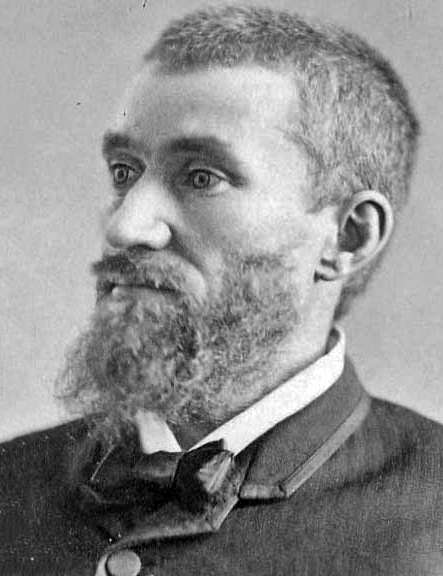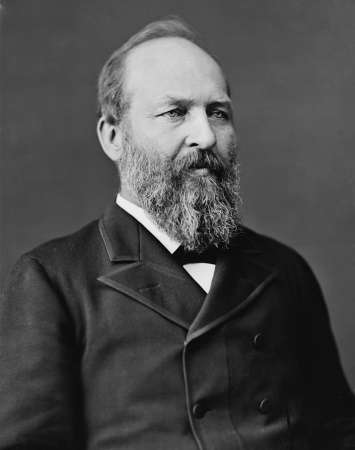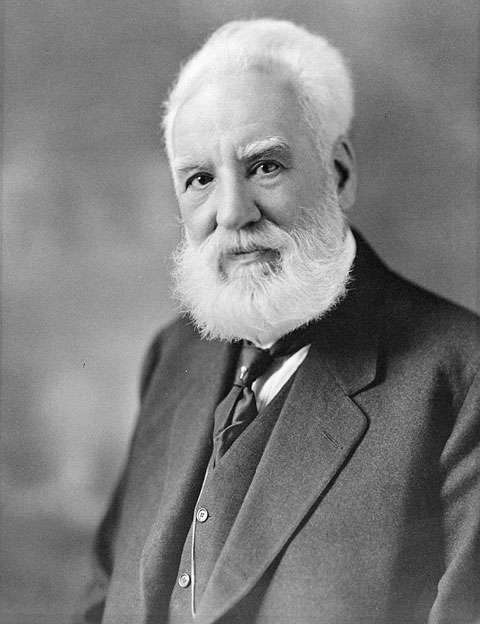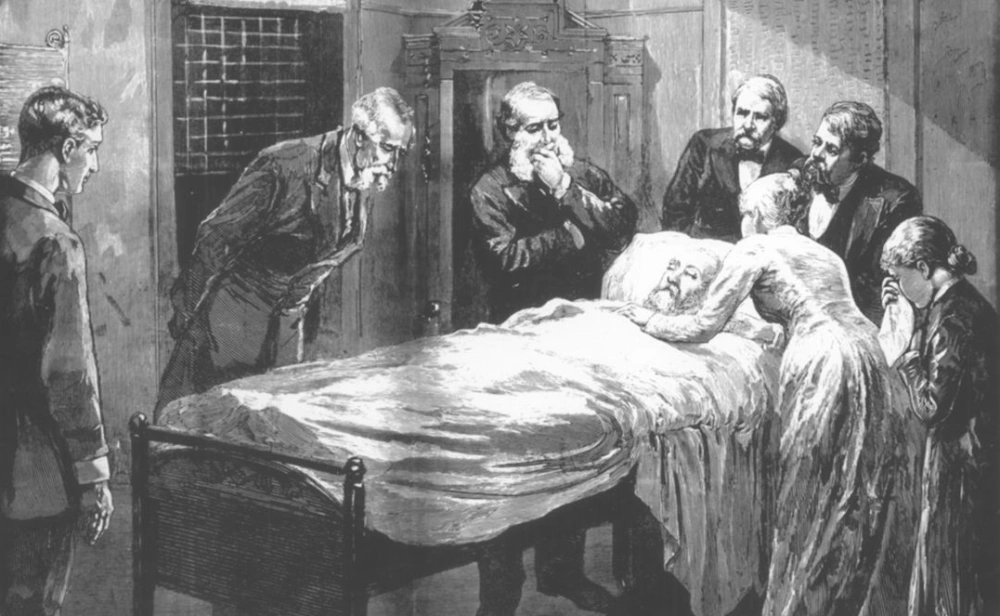The brilliant inventor Alexander Graham Bell found his greatest success with the telephone,. But perhaps his highest profile effort at inventing came when he tried his hand at medicine. He did it in an effort to save the life of the president of the United States.
The assassination of James Garfield less than four months into his term of office on July 2, 1881 became one of the oddest spectacles in American history.
Charles Guiteau
Charles Guiteau. an insane aspiring politician, shot Garfield at what he claimed was God’s direction. He believed the president didn’t show enough gratitude for Guiteau’s political support. That consisted of publishing an unusual endorsement pamphlet.
Guiteau then performed as a newspaper sideshow right up until his execution. He recited poems for his defense at trial and danced up the gallows steps. He waved to the assembled crowd and recited one final poem, ‘I Am Going to the Lordy.’ One aspect of his defense was his claim that while he admitted shooting Garfield, he had not killed him. Guiteau blamed the president’s inept medical care for his demise – and on that point he was probably correct.

Charles Guiteau
He had approached the president at a Washington, D.C., train station as he tried to leave the city for the New Jersey seashore. Guiteau shot him twice, one bullet grazing his shoulder and the other lodging in his body behind his pancreas.
Some observers initially suspected – and quickly concluded they were wrong – that Vice President Chester Arthur was behind the shooting. That’s because after the deed Guiteau shouted: “I did it and I want to be arrested! Arthur is President now!”
Malpractice
Not quite. Garfield would, in fact, survive for two months and 18 days following the shooting. He was taken to the White House, where navy engineers rigged an air conditioner to alleviate the heat of Washington’s summer. They set up a box of ice and had fans blow the air over it into the president’s sickroom.

James A. Garfield
Garfield’s surgeons had initially mistaken the path of the bullet that felled the president when they attempted to locate it. For the next 11 weeks they became obsessed with trying to find it, repeatedly probing into his back with unwashed hands and surgical instruments.
Had they left him alone, most medical experts have concluded, Garfield probably would have survived. However, the infection that set in following the shooting and multiple surgeries eventually overwhelmed him.
Alexander Graham Bell
In one of the odder attempts at locating the bullet, Alexander Graham Bell would be called in from Cambridge, Mass., to assist. The Scotsman had gained fame five years earlier with the successful demonstration of his invention of the telephone in Massachusetts. He was working on his latest idea, which he thought might help.

Alexander Graham Bell
Bell was developing what we would today call a metal detector – one of those devices that emits a crackling whine when waved over something metal.
Bell worked furiously to refine his device. He brought it to Washington, where he tried twice – on July 26th and later on August 1st – to use it to locate the bullet within the fading president.
There would be no ‘Watson. Come Here. I need you’ moment. The crude metal detector may have found the bullet, but without enough specificity for anything to be done about it.
Garfield would pass away on September 19, and the commercialization of the metal detector would not come for another 40 years.
* * *
 As Garfield lingered, the public wondered what his successor, Chester A. Arthur, would be like. Find out in the New England Historical Society’s Eat Like a President. Click here to order your copy.
As Garfield lingered, the public wondered what his successor, Chester A. Arthur, would be like. Find out in the New England Historical Society’s Eat Like a President. Click here to order your copy.
This story was updated in 2024.



9 comments
Its’ no wonder many of us are afraid to go to the doctor. I think it’s probably genetic, like the fear of snakes. lol
[…] Butt dialing, prank phone calls, and the busy signal all owe their existence to Coy, an enterprising man who was inspired by a lecture by Alexander Graham Bell. […]
[…] nature of office work began to change as well. Alexander Graham Bell invented the telephone in 1870. The Remington Arms Co. introduced a commercial typewriter in 1873. […]
[…] them. Oliver Wendell Holmes, Sr., watched the fire from Beacon Hill and wrote a poem about it. Alexander Graham Bell submitted and eyewitness account to the Boston Globe but was […]
[…] Alexander Graham Bell conducted genealogical research on Martha’s Vineyard, trying to isolate the cause of deafness. […]
[…] Criticism, apparently, didn’t work too well on one member of the community. Charles Guiteau lived in Oneida for five years before going off to assassinate President James Garfield. […]
[…] parents sought the advice of Alexander Graham Bell, who recommended they contact the Perkins School for the Blind in South […]
[…] from the railroad’s main office. He knew that a nearby druggist on Capitol Avenue had installed Alexander Graham Bell’s speaking telephone. He rushed over and used the store's telephone to call other doctors for […]
[…] had loaned money to his boss, Alexander Graham Bell, to help him develop the telephone. He was the same Watson who Bell had summoned through the phone […]
Comments are closed.